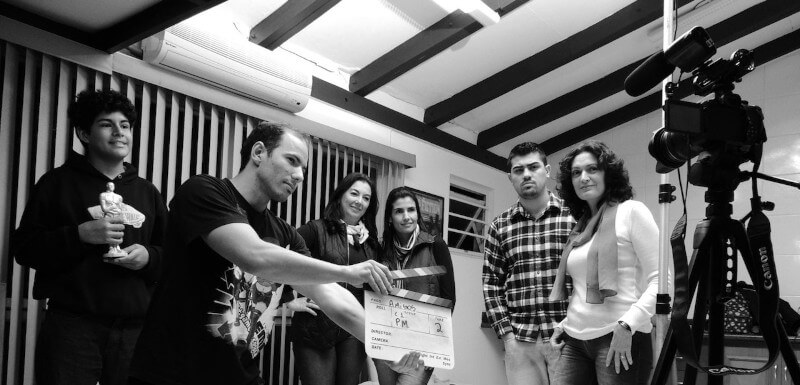In the vast world of film, TV, and the arts, one of the most prestigious careers is that of the casting director. Locating talented actors for productions is the focus of casting directors, who can have come up through the ranks from a range of educational backgrounds and gained a lot of expertise in casting or talent management. In order to decide whether or not becoming a casting director is the right career move for you, it is helpful to have a firm grasp of the role, the salary range, and the requirements for entry. This piece delves into what the casting director does, how much they make, and the steps it takes to get there.
To Begin, Who Exactly is a Casting Director?
A casting director is a member of the filmmaking industry whose job it is to find and cast actors and actresses in movies, TV shows, commercials, and photo shoots. They work together with the show’s producers and directors to find the perfect fit for each role, whether it be a lead, supporting, or extra.
What is the Job of a Casting Director?
The duties of a casting director can change depending on the size of the production, the company they work for, and the location of the shoot. Among their general responsibilities are:
- Analysing dialogue and character sketches
- Having a meeting with the producers and directors to discuss what qualities make for great actors and characters.
- searching through portfolios of potential models, actors, and other performers
- Analysing potential candidates’ audition tapes
- Conducting open auditions and talent searches in other cities
- Screen tests and confined auditions for actors
- Selecting skill sets of people who meet moral standards
- Involvement in the casting process, working with producers and directors to identify and secure leading and featured actors
What is the Salary Range for a Casting Director?
Many factors can influence a casting director’s salary, some of which are:
- Expertise and schooling
- An undertaking’s remit
- When they work
- The genres of film and television they cast for
Casting managers, who do similar work to casting directors, can find salary information on indeed. It’s possible for casting directors to earn up to R 1 381 434 annually.
Casting Director Career Advice

One can get into this field in a variety of ways. Some begin with gaining a basic education, while others jump right into the workforce. For those interested in entering the field of casting, we offer the following suggestions:
Obtain Your Bachelor’s Degree as Soon as Possible
Obtaining a bachelor’s degree in any profession that’s capable of providing you with groundwork in transferable skills like writing, research, innovative thinking, and clinical reasoning will boost your employment prospects, career progression, and potential earnings. Some potential fields of study are:
- Media on the silver screen and the small screen: The primary goals of this four-year undergraduate program are to educate students about the evolution of film and television, provide hands-on experience with media production across multiple genres, and encourage students to develop their creative voices through the development of original portfolio pieces.
- Studying the history of theatre, acting and directing techniques, creating original works for the stage, performing in front of audiences, and managing a theatre company are all possible paths to take as a theatre major.
- If you’re interested in the many different types of visual art, but want to focus on just one, this is the major for you. You can hone your artistic faculties by taking classes in painting, photography, or sculpture.
- Writing, research, and the study of communication methods, practices, and customs are all part of a communication major, as is the development of skills for applying those lessons in a variety of contexts.
- Finance, accounting, marketing, and advertising are just some of the areas of expertise that can be gained from a business degree.
- As an ambitious young casting director, you need to be able to communicate and lead effectively, and all of these programs can help you develop those skills.
Get Apprenticeship Experience
Interning in the film, theatre, or expert photography industries is a great way to gain expertise, establish contacts, and learn about casting regardless of if you plan to earn a degree in the field. Meeting producers, directors, and actors through an apprenticeship at a production company or theatre is a great way to get your foot in the door as an assistant in the entertainment industry. Interning at a casting or talent agency will allow you to learn from the pros and lend a hand in the casting process. A successful internship can lead to a job offer for a more junior position with the same company.
Put in Some Time at a Casting Scholarship or Apprenticeship
You should think about interning or studying under a professional casting director after you’ve gained some experience in the field. These internships allow you to observe professional casting directors in action while assisting with duties like screening applications and headshots and discussing talent after auditions.
These encounters can pave the way to assistant positions with established casting directors or to professional life as a freelance casting professional. Another avenue could be to get your foot in the door by becoming a casting researcher first, which could then act as a stepping stone to making your way up to the casting director. If you need to know more about becoming a casting researcher, click here to read YLO’s blog on, “How to Break Into the Field of Casting Research.”
Participate in Casting-related Volunteer Activities
Volunteering for your services to cast a local production, event, magazine shoot, or stageplay is another great way to keep your skills sharp. A great way to gain experience in casting while still in college is to volunteer to help out student directors or professors with their productions. Community theatres are another good resource for finding acting roles. These responsibilities may or may not come with a salary.
Get Your Foot in the Door as a Casting Associate
You should start your search for expert casting positions as a casting assistant. Finding new talent for casting directors and associate casting directors is a major part of this role. You could be in charge of collaborating with agents, planning auditions, supplying audition tapes, accumulating cv’s and headshots, creating audition rooms and recording devices, and assisting casting directors to handle a talent pool, based on your experience level, the range of the casting director’s job, and the number of casting associates currently on the team.
Get in Touch With Other Industry Insiders
How about:
- Doing an apprenticeship in your field of interest
- Going to conventions and shows related to the theatre and film industries
- Participating in the production as a production assistant or background actor
- Making movies, plays, or photoshoots together with coworkers
You can meet casting directors, learn about job openings, get in touch with other creative types, and maybe even find a teacher or prospective colleague at any of these events, and many more like them. Establishing a support system of actors, directors, production companies, and others in the industry is crucial to your success as a casting specialist.
A Career as an Assistant Casting Director
After gaining experience as a casting assistant, you can apply for the position of an associate casting director at a production company, casting agency, or with a particular casting director or project. You’ll be helping the casting director out by giving them advice, reviewing actors, and setting up callbacks with agents. Reporting directly to the casting director, this position offers excellent one-on-one training and development opportunities.
Promotion to the Position of a Casting Director
When applying for positions as casting directors, most employers look for candidates with at least ten years of experience in the industry. Since you won’t be working under the umbrella of a production company in this position, you and your team will have to find your clients.
Get in touch with producers and directors that you’ve collaborated with in the past to see if they have any openings in their casts. If you’re connected and accomplished, you may find that a select group of people regularly approach you with chances to collaborate. You may have connections with execs at numerous production companies who could offer you additional work.
Aspiring Casting Directors: Frequently Asked Questions

To help you better understand what it takes to become a casting director, we’ve compiled some frequently asked questions below.
How Does One Acquire the Necessary Expertise to Work in Casting?
Successful casting directors possess a range of interpersonal and professional abilities, such as:
- Critical Imagination
- Correspondence
- Offering suggestions and criticism
- Collaboration
- Playing roles
- Directing productions
- Organization
- Decision-making
If You Want to Be a Casting Director, is Formal Education Required?
Although a bachelor’s degree is not typically required to enter the industry, it is often necessary for higher-level positions. A bachelor’s degree is required, and it can be in any field (though one in film, theatre, business, or communication would be especially useful).
How Do Casting Directors and Agents Differ From One Another?
Agents are responsible for helping their clients find work, arranging auditions, meeting with casting directors, directors, and producers, and handling all contractual matters, while casting directors are only responsible for holding auditions and selecting actors to play roles. Agents and casting directors may work together to plan auditions, screen tests, and casting calls so that actors can land more auditions and better roles.
